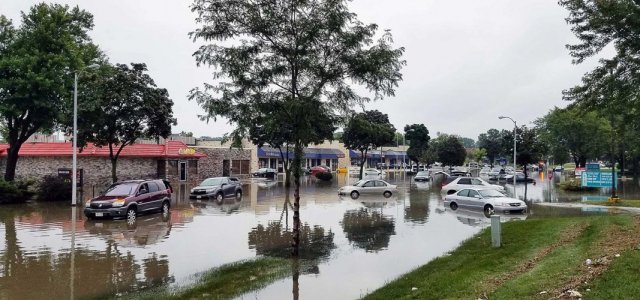You believe your insurance policy has you covered in the event of water flood damage, right? Not so fast; all is not as it seems.
Flood insurance coverage is easily one of the most misunderstood claims in the industry.
It comes down to two questions:
- What defines a flood?
- What defines the coverage?
Flood coverage protects differently than what the average person might expect. If water gets in the basement from the rain or from the sewer drain, a homeowner would say he experienced a flood. The insurance company would disagree.
Know Your Flood Insurance Coverage Limits and What’s Not Covered
- Groundwater in the basement or home is almost never covered, at least not in a general policy. Why? Insurance agents claim it is not covered is because if it were and the subsequent claims were filed, insurance premiums would rise substantially for everybody. So, check your rain spouts and grab some sand bags because you are probably not covered.
- If you do have flood insurance, there is really no coverage until the flooding reaches the first floor. Coverage is limited for a flooded basement, but the cost is high. In some cases, FEMA Flood Coverage, or The National Flood Insurance Plan (NFIP), is a supplemental government assistance program that can help. However, a geographical disaster must first be declared by the state or municipality.
- If the sump pump fails or water comes in from a basement surface drain, you must have sewer drain and back-up coverage to file a claim. Limits on this claim can be anywhere from $5,000 to $10,000, which certainly helps, but if you have a large finished basement, costs can easily exceed those amounts.
- If you have a leaky sink, toilet, or shower that causes water damage, you are probably not covered. Insurance issues claims for events that are “sudden and incidental.”
- In the eyes of insurance coverage, many of these issues are maintenance-related and preventable.
Prevention is The Best Coverage
Take the following steps to proactively deal with flooding:
- Make sure you talk to your insurance agent to make certain that you have all the necessary insurance endorsements.
- The additional costs are usually nominal.
- Make sure the mechanical aspects of your home or business are in good working order including drains, pumps, and spouts.
- Avoid storing valuable contents in the basement, or if you must, put sensitive items in waterproof containers on elevated surfaces.
- Keep a spare pump and hose ready and available in the basement.
Related Services:

